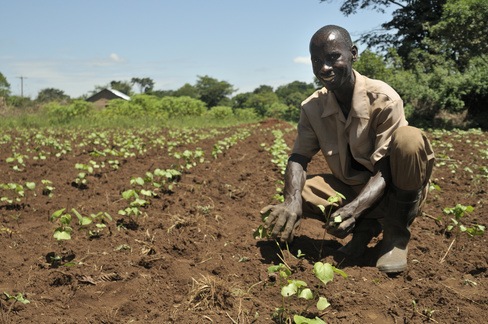 Some communities in the Eastern Region have organised series of public durbars to celebrate their graduation to self-reliance after aid giver, The Hunger Project (THP), symbolically announced withdrawal of its support.
Some communities in the Eastern Region have organised series of public durbars to celebrate their graduation to self-reliance after aid giver, The Hunger Project (THP), symbolically announced withdrawal of its support.
Three epicentres covering about 32 communities were declared “self-reliant” after successfully satisfying the performance criteria set by THP- non-governmental organisation – aiming to stop hunger and mitigate poverty worldwide.
Around 50 diverse benchmarks were used to measure progress and assessed communities’ path to sustainable development.
Chief Executive Officer of THP, Mrs Asa Stogstrom Feldt, said the celebration marked first in the Project’s 118 epicentres in Africa that have climbed to self-reliance.
Mrs Feldt said this during a tour with a team of investors from the globe along with local media to the region, which started on Monday.
“This achievement is the culmination of a long term participation and commitment between communities.
“We are so thrilled and proud of what our community partners have accomplished,” she said.
“This is an example of how a strategy can achieve locally owned vision and goals and foster a culture of self-determination in, which the community itself is the driver of continued change,” she said.
The Country Director of The Hunger Project Ghana, Mr Samuel Erasmus Afrane, told the Ghana News Agency that there are 45 epicentres (made of cluster of communities) running in five regions of the country.
He said 38 are dotted across various districts in the Eastern Region, mostly in very deprived communities, where members do not have access to proper healthcare, education and credit facilities.
The Akotekrom epicentre in Birem South District, Atuobikrom in Kwahu South and Nsuta-Aweregya in Kwahu West Municipality, were the three centres to have fulfilled conditions for elevation into self-reliant.
Four additional epicentres would also graduate next year, Mr Afrane said.
Many conventional development strategies had focused on the hungry as the problem to addressing poverty, but Mr Afrane said it is imperative to work on changing people’s mind-set through building their capacity to move away from dependency.
To become self-sufficient, he said, people’s attitude has to change from “state of dependency and resignation to state of hope and unstoppable desire to change [their] status progressively”.
“In fact, to declare somebody as self-reliant, all the indicators that we set for the past eight years of education we gave to them they will have to go through all of them.”
“Every epicentre is expected to score not less than 80 per cent in all those indicators,” he explained.
As part of the conditions to climb to self-reliant, an epicentre ought to be registered legally as civil society organisations.
The land acquired to build the centre must also be registered or legally owned.
Officials described the celebrations as “symbolic and memorable” as their merry showed poverty could be eradicated by the people themselves.
“The people of these epicentres are showcasing to the whole world that nobody is too poor to develop and that poor people only need encouragement to develop,” Mr Afrane said.
Community partners praised the project officers for providing the areas with varied aids to complete infrastructure projects and deepen their social skills and talents.
Mr Samuel Neequaye, Akotekrom Epicentre Representative, said varied ethnic and cultural backgrounds had made it difficult for communities to work in unison to execute common projects.
“I must admit that the entire idea of coming together as cluster with a common goal was entirely new to us and we saw it as a great task.
“As a people, there was never a time where we could think of coming together as 15 communities with a common goal to work for development.
“But in 2007, the winds of development blew like a storm in these 15 communities, when for the first time a conscious effort was made for us to come together as one people,” he said.
Prior to the coming into force of THP in the areas, which are predominately farming communities, Mr Neequaye said: “We had serious challenges of access to healthcare, we used to travel not less than 19 kilometres to access healthcare.
“Sometimes pregnant women who were due for delivery had to walk longer distances whilst in labour, just for a safe delivery at the nearest health centre.
“We lost some mothers and precious babies as a result of this, the worse of it was when a woman was in labour at night.
“We also had serious cases of domestic violence leading to broken homes and injuries, females were resigned to the kitchen and did not have equal opportunities as men.
“We had pupil of school going age following their parents to farms instead of school and child labour was the order of the day.
“Access to credit facility was something we did not conceive to be at our doorstep, only few people from our communities could go to banks in Akim Oda to access loans.
“We lived by what we produced, we did not have any idea of inculcating a savings culture, the idea of seeing farming as a business was out of the equation, we were contended with our archaic and back aching agronomic practices.”
The Hunger Project gained deep prominence in local communities due to its interventions that boosted women empowerment, promoted HIV and AIDS and nutrition education.
It also affected crop improvement, advocacy and partnership building, microfinance, infrastructural support and establishment of strong democratic principles, enhanced unity and strength among locals.





